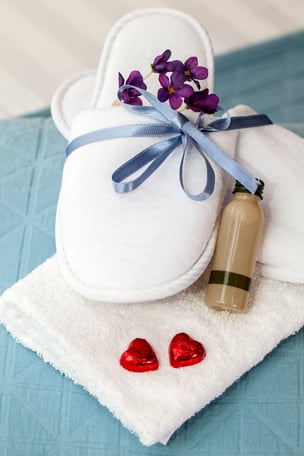The global tourism industry experienced a seismic shift in 2014, when a record 109 million Chinese travelers went overseas. China has overtaken the United States to become the world's largest outbound tourism market, spending $165 billion in 2014. The wealthiest 10 percent of Chinese travelers wield formidable buying power; they spend more than US $2,000 per day (including on accommodations) according to Hotels.com's 2015 Chinese International Travel Monitor report.
How are hotels adapting to the surge in Chinese travelers? Here's a summary of the latest trends. 
Hotels are furnishing Chinese travelers with the comforts of home.
At least three major hotel chains — Hilton, InterContinental Hotels Group and Hyatt Hotels Corporation — have launched programs aimed at making Chinese tourists feel at home, Hotel News Now reports. At IHG, this means having Chinese-speaking staff available at the front desk or via phone, offering Chinese channels on in-room TVs, and serving Chinese tea, food and beverages. Hilton's Huanying welcome program includes in-room slippers and a traditional Chinese breakfast: congee (rice porridge) with condiments, fried rice or fried noodles, dim sum, fried dough fritters, hard-boiled eggs, Chinese tea, fresh fruit and soy milk.
Hotels are paying attention to Chinese tourists' wish lists.
According to the 2015 CITM report, the hotel amenities Chinese tourists ask for most often are:
- Free Wi-Fi
- An in-room kettle
- Translated travel guides
- In-house staff who speak Mandarin
- UnionPay facilities
Hotels that want to attract Chinese guests should meet these five basic needs as best they can. Never heard of UnionPay? It's the world's largest credit card brand and the only domestic bank card in China.
Hotels are learning what Chinese tourists enjoy most.
Increasingly, Chinese travelers — especially millennials — prefer to travel independently instead of in the traditional tour groups. Millennials’ favorite activities are sightseeing, dining, shopping, visiting resorts and beaches, and eco-tours, according to the CITM report.
Shopping is one of the main tourism drivers for Chinese of all ages, Dr. Wolfgang Georg Arlt, director of the China Outbound Tourism Research Institute (COTRI), tells CNN. Not only are luxury products cheaper overseas, he says, but Chinese travelers are proud of the economic power they wield. "Many have parents who didn't have shoes... . Now they're showing the world and themselves: 'I'm strong, I can go spend US$5,000 for nothing, just my pleasure.'"
Hotels are paying attention to the Chinese calendar.
Peak travel periods for Chinese tourists aren't the same as those for Americans or Europeans — which is a boon for hotels trying to fill rooms during off seasons. Here are the times when Chinese travel the most, according to AttractChina:
- The week beginning October 1: Known as Golden Week, this is a holiday period when millions of Chinese travel — and the more affluent go overseas to avoid the domestic crowds.
- Early July through late August: The summer holidays for students are also popular times for families to travel.
- Late January to mid-February: The Spring Festival is a 7- to 10-day holiday beginning on the day before the Lunar New Year. Considered a time for families to celebrate together, the festival is becoming a time for vacations abroad.
Hotels are courting Chinese tourists online.
Fully 80 percent of Chinese travelers used some kind of online source to plan their travel in the last 12 months, according to the 2015 CITM report, and half used smartphone apps.
Hotel chains are paying attention. Four Seasons plans to release a Chinese version of a proprietary app that allows guests to book travel, contact the concierge, make room service requests and get local travel guides on their phones. The report also found that 16 percent of hotels have expanded their presence on social media channels such as Weibo18 to reach Chinese travelers.
If you have a fun or interesting story idea, please submit it here. The best stories will be developed and published on our blog to be distributed to the international HBC Community, with your name attached. A little publicity can always help to grow your business and awareness.


